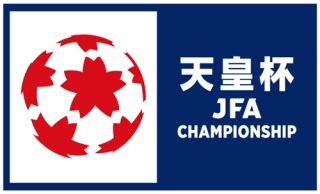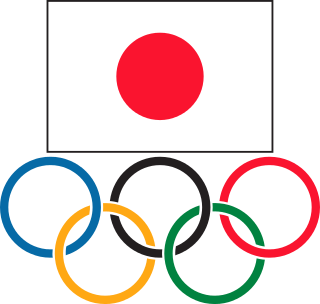Results
| 2009.11.14 | Japan | 2–1 | New Zealand | Saitama, Japan |
| Miyama Ono | ? | Stadium: Saitama Komaba Stadium |
This page records the details of the Japan women's national football team in 2009.
| 2009.11.14 | Japan | 2–1 | New Zealand | Saitama, Japan |
| Miyama Ono | ? | Stadium: Saitama Komaba Stadium |
| Player | −2008 | 07.29 | 08.01 | 11.14 | 2009 | Total |
| Homare Sawa | 145(72) | - | - | O | 1(0) | 146(72) |
| Nozomi Yamago | 86(0) | - | O | O | 2(0) | 88(0) |
| Eriko Arakawa | 68(20) | - | - | O | 1(0) | 69(20) |
| Aya Miyama | 68(19) | - | - | O(1) | 1(1) | 69(20) |
| Kozue Ando | 68(10) | O | O(1) | O | 3(1) | 71(11) |
| Shinobu Ono | 65(25) | O | O(1) | O(1) | 3(2) | 68(27) |
| Karina Maruyama | 58(13) | O | O | - | 2(0) | 60(13) |
| Yuki Nagasato | 52(28) | O | O | O | 3(0) | 55(28) |
| Kyoko Yano | 51(1) | - | - | O | 1(0) | 52(1) |
| Azusa Iwashimizu | 41(5) | O | O | O | 3(0) | 44(5) |
| Yukari Kinga | 37(1) | O | O(1) | O | 3(1) | 40(2) |
| Rumi Utsugi | 26(4) | O | O | O | 3(0) | 29(4) |
| Yuka Miyazaki | 17(2) | - | O | - | 1(0) | 18(2) |
| Nayuha Toyoda | 17(0) | O | O | - | 2(0) | 19(0) |
| Ayako Kitamoto | 9(3) | O | O | O | 3(0) | 12(3) |
| Ayumi Kaihori | 3(0) | O | O | O | 3(0) | 6(0) |
| Aya Sameshima | 2(1) | O | O | O | 3(0) | 5(1) |
| Nahomi Kawasumi | 1(0) | O | O | - | 2(0) | 3(0) |
| Mami Yamaguchi | 1(0) | - | O(1) | - | 1(1) | 2(1) |
| Asano Nagasato | 0(0) | O | O | O | 3(0) | 3(0) |
| Miwa Yonetsu | 0(0) | O | - | O | 2(0) | 2(0) |
| Maiko Nasu | 0(0) | - | O | O | 2(0) | 2(0) |
| Megumi Kamionobe | 0(0) | - | O | - | 1(0) | 1(0) |

The Japan national football team, also known by the nickname Samurai Blue, represents Japan in men's international football. It is controlled by the Japan Football Association (JFA), the governing body for football in Japan.

The South Korea national football team represents South Korea in men's international football and is governed by the Korea Football Association. South Korea has emerged as a major football power in Asia since the 1980s, having participated in ten consecutive and eleven overall FIFA World Cup tournaments, the most for any Asian country. Despite initially going through five World Cup tournaments without winning a match, South Korea became the first Asian team to reach the semi-finals when they co-hosted the 2002 tournament with Japan. South Korea also won two AFC Asian Cup titles, and finished as runners-up on four occasions. Furthermore, the team won three gold medals and three silver medals at the senior Asian Games.

The Uzbekistan national football team represents Uzbekistan in international football and is controlled by the Uzbekistan Football Association, the governing body for football in Uzbekistan.

The North Korea national football team represents North Korea in men's international football and it is controlled by the DPR Korea Football Association, the governing body for Football in North Korea. The team represents both FIFA and Asian Football Confederation (AFC).

The Emperor's Cup JFA All-Japan Football Championship Tournament, commonly known as The Emperor's Cup or Japan FA Cup, and rebranded as The JFA Emperor's Cup from 2024 onwards, is a Japanese annual football competition. It has the longest tradition of any football match in Japan, dating back to 1921, before the formation of the J.League, current JFL and their predecessor, Japan Soccer League.

The Japan Football Association is the governing body responsible for the administration of football, futsal, beach soccer and efootball in Japan. It is responsible for the national team, as well as club competitions.
The Japan women's national football team, commonly known as Nadeshiko Japan (なでしこジャパン), represents Japan in women's association football and is run by the Japan Football Association (JFA). The only country to win every FIFA competition and the most successful women's national team in the Asian Football Confederation, its highest ranking in the FIFA Women's World Rankings is 3rd, achieved in December 2011.
The Kirin Cup Soccer is an association football tournament organised in Japan by the Kirin Brewery Company. The host, Japan, is a participant in every edition. The tournament was founded in 1978 then known as Japan Cup, and was last held in its full form in 2022.
The Japan national futsal team, nicknamed Samurai Five, represents Japan in international futsal competitions and is controlled by the Japan Football Association.
England national under-16 football team, also known as England under-16s or England U16(s), represents England in association football at an under-16 age level and is controlled by the Football Association, the governing body for football in England.
The Japan national beach soccer team represents Japan in international beach soccer competitions and is controlled by the JFA, the governing body for football in Japan. One of the leading Asian beach soccer teams, Japan's best performance at the FIFA Beach Soccer World Cup was in the 2021 edition, when they were runners-up to the hosts Russia, which played as the Russian Football Union (RFU).

V-Varen Nagasaki is a Japanese football club based in Nagasaki, Capital of Nagasaki Prefecture. They currently play in J2 League, the Japanese second tier professional in football league.
The Japan national under-20 football team is a national association football team of Japan and is controlled by the Japan Football Association. The year before the FIFA U-20 World Cup, the national team is renamed the Japan national under-19 football team, and the year before that, the national team is renamed the Japan national under-18 football team.
The Japan national under-17 football team is a national association football youth team of Japan and is controlled by the Japan Football Association. The team were champions in the 1994 and 2006 AFC U-17 Championships, as well as the 2012 AFF U-16 Youth Championship. The year before the FIFA U-17 World Cup, the national team is renamed the Japan national under-16 football team, and the year before that, the national team is renamed the Japan national under-15 football team.

The Japan national under-23 football team is a national association football youth team of Japan and is controlled by the Japan Football Association. The team won the gold medal at the 2010 Asian Games and were champions in the 2016 AFC U-23 Championship. Since 1992, it was decided that teams targeting athletes under the age of 23 will participate in the Olympics. Therefore, the name changes to Japan national under-22 football team the year before the Olympics and Japan national under-21 football team two years prior. The exception to this was the 2020 Tokyo Olympics, which was postponed one year, so in 2021, the team was called the Japan national under-24 football team.
The Japan women's national under-17 football team is a national association football youth team of Japan and is controlled by the Japan Football Association. It has reached the World Cup Finals on three times and won the 2014 edition.
The 2020 Emperor's Cup was the 100th edition of the annual Japanese national football cup tournament. The tournament, originally scheduled to begin on 23 May, was rescheduled to begin on 16 September and ended with the final on 1 January 2021 at the National Stadium.
The 2021 J1 League, also known as the 2021 Meiji Yasuda J1 League for sponsorship reasons, was the 29th season of the J1 League, the top Japanese professional league for association football clubs, since its establishment in 1992. This was seventh season of J1 League as renamed from J. League Division 1. The league began on 26 February and ended on 4 December 2021.
The 2021 Emperor's Cup was the 101st annual Japanese national football cup tournament, which began on 22 May 2021 and ended with the final on 19 December that year.
The 2022 J1 League, also known as the 2022 Meiji Yasuda J1 League for sponsorship reasons, was the 30th season of the J1 League, the top Japanese professional league for association football clubs, since its establishment in 1992. This was eighth season of J1 League as renamed from J. League Division 1.